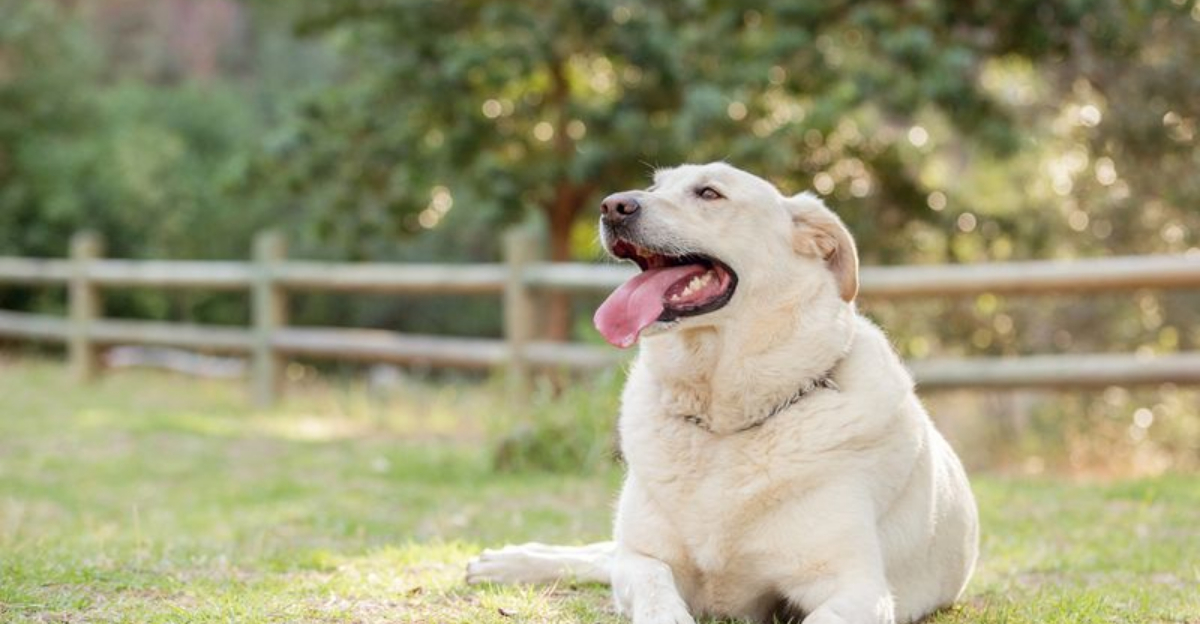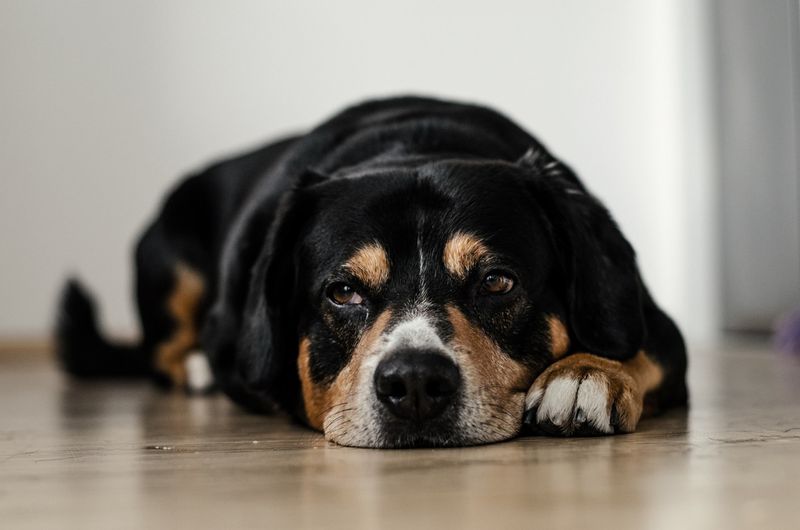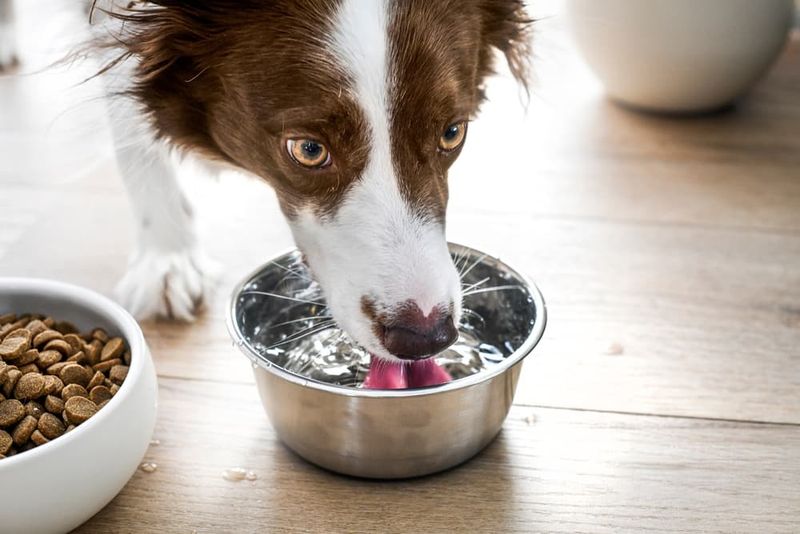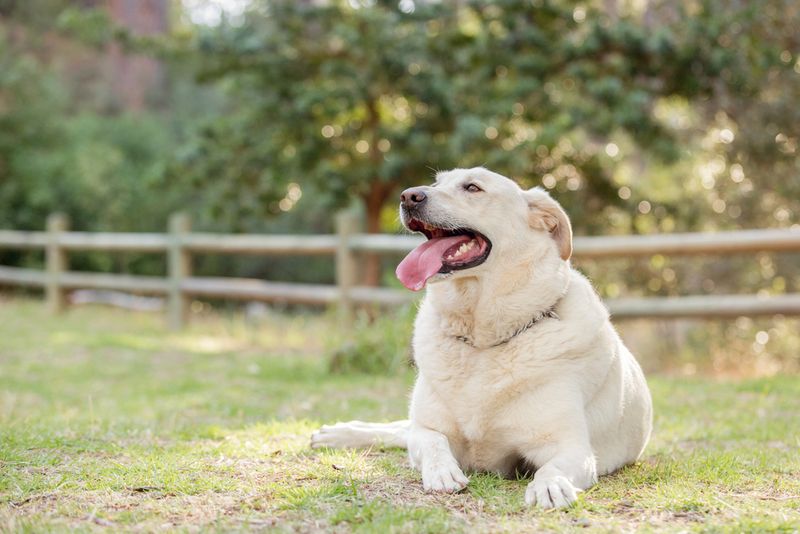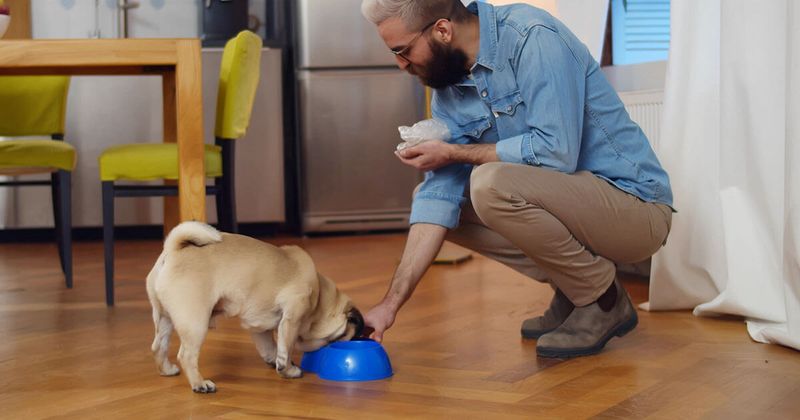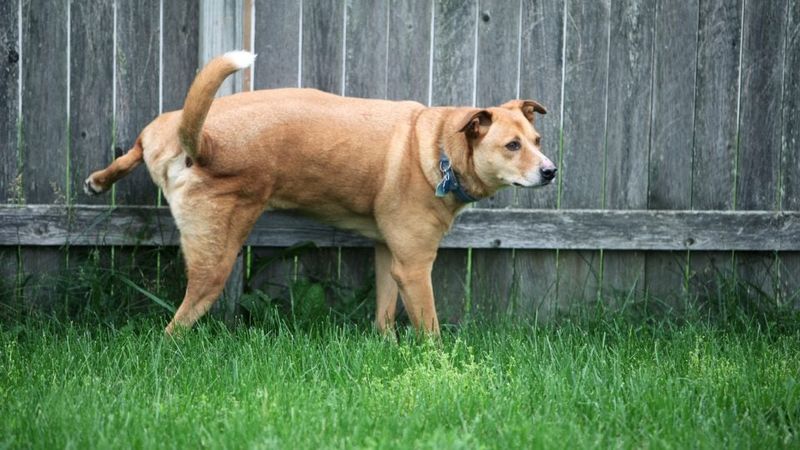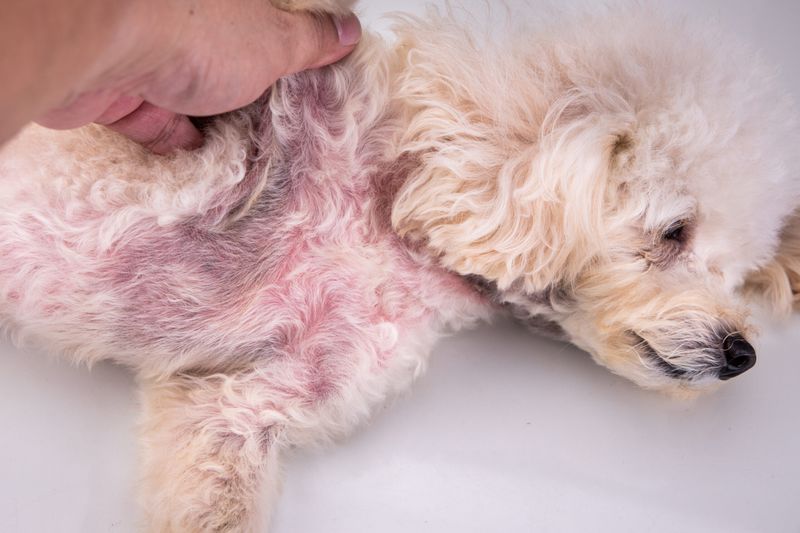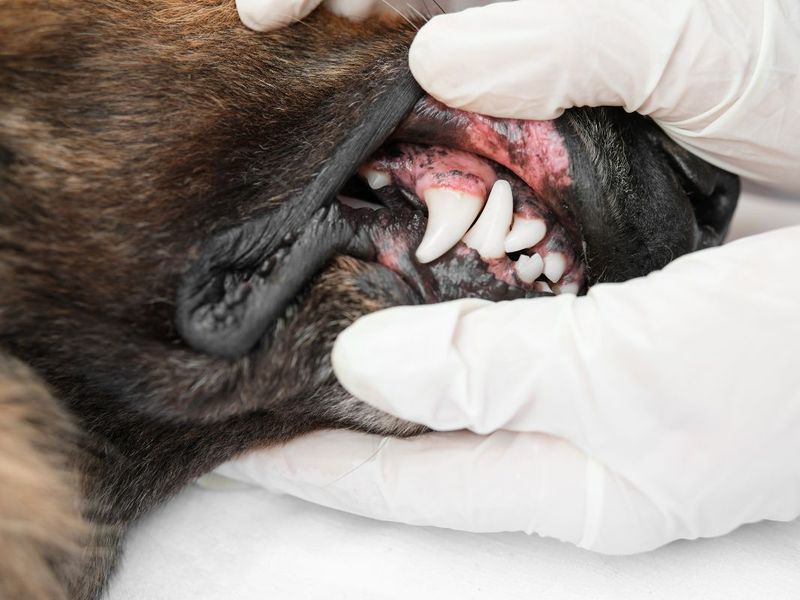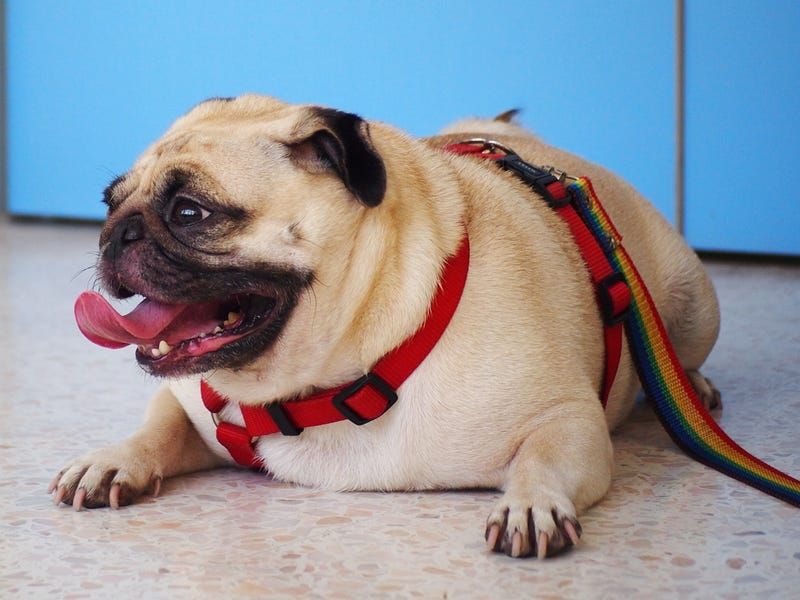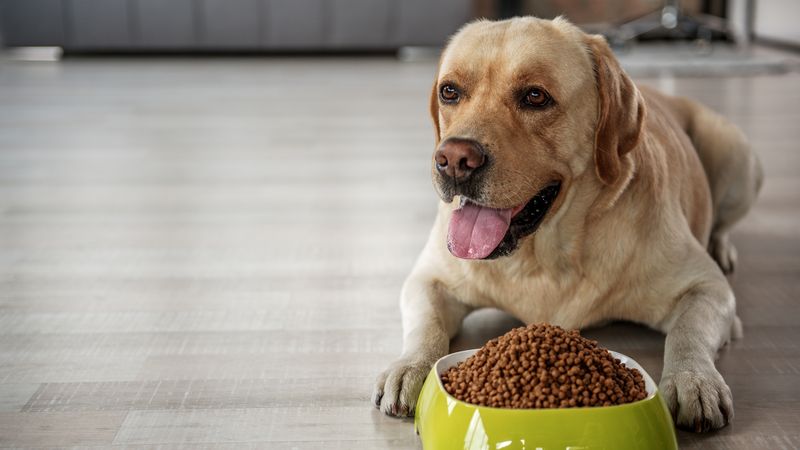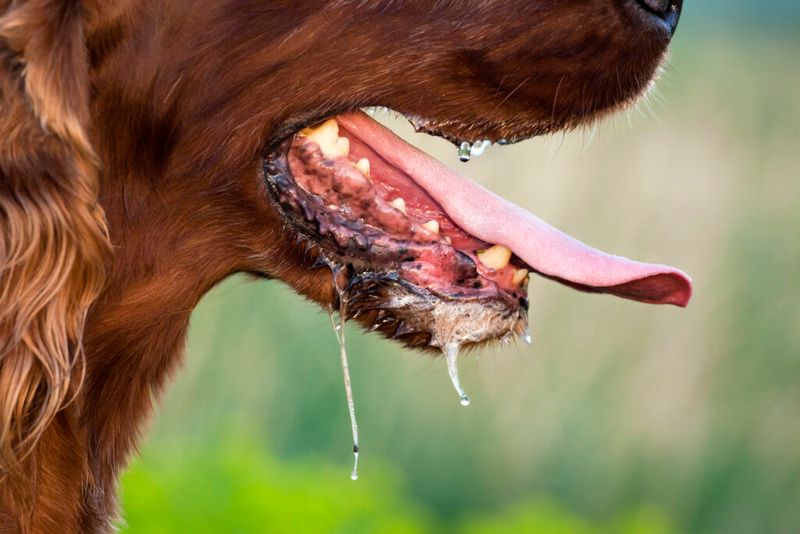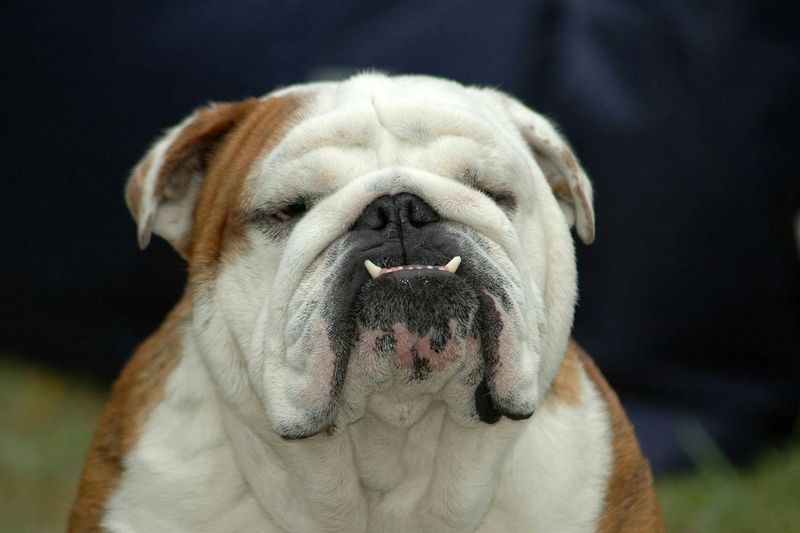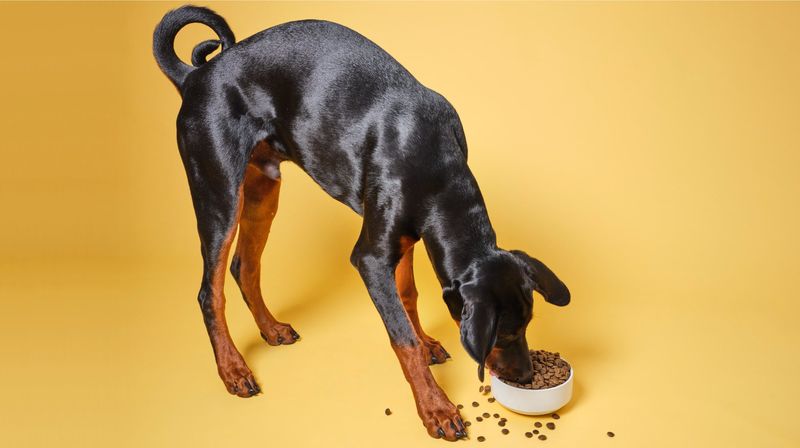The love we have for our furry companions often translates into treats and extra portions. While meant as a gesture of affection, this can sometimes lead to overfeeding, impacting their health and well-being. Recognizing the subtle signs that your dog might be eating too much is crucial for maintaining their health. Here are 15 clues to help you determine if your four-legged friend is getting a little too much love in the form of food.
Reduced Energy Levels
“Is your usually energetic pup seeming more sluggish than normal? Overeating can lead to reduced energy levels in dogs, resulting in lethargy and less interest in playtime.
This change in behavior is often subtle and can be mistaken for aging. However, increased caloric intake without adequate exercise can be the real culprit.
Monitoring your dog’s activity levels and adjusting their diet accordingly can help restore their vibrant nature. A balanced diet ensures your pet has the energy they need to run, play, and explore their world.”
Increased Thirst
“Have you noticed your dog drinking more water than usual? An increased thirst can be linked to excessive food consumption, especially if the diet is high in salt.
This change might be your dog’s way of balancing their body’s needs, or it could signify an underlying health issue. Keeping an eye on their water intake alongside their food consumption is crucial.
Providing fresh water and maintaining a balanced diet can help keep your pet healthy and hydrated. It’s important to consult a vet if you notice any unusual patterns in their drinking habits.”
Weight Gain
“Does your dog seem to be packing on the pounds? A noticeable increase in weight is a clear sign that your furry friend might be enjoying a few too many treats.
This weight gain can lead to various health issues, such as joint pain or diabetes. Regularly weighing your pet and comparing it with the breed’s standard weight can offer insights.
Keeping track of their diet and exercise routine can help in managing their weight. Remember, a healthy diet paired with regular exercise is vital for maintaining your dog’s ideal weight.”
Digestive Issues
“Is your dog experiencing frequent digestive issues such as diarrhea or gas? These symptoms can indicate that their diet might be too rich or portion sizes too large.
Digestive discomfort can be distressing for your pet, and chronic issues may lead to more severe health complications. It’s essential to monitor their eating habits and adjust their diet as needed.
Consulting with a vet to tailor their diet can address these concerns. A balanced diet supports a healthy digestive system and contributes to your dog’s overall well-being.”
Behavioral Changes
“Has your dog’s behavior taken a turn? Overeating can lead to irritability or restlessness, as the excess energy from food isn’t adequately expended.
These changes might manifest as increased barking, aggression, or anxiety. Recognizing these shifts is crucial for identifying dietary imbalances.
Adjusting their food intake and ensuring they have enough physical activity can help stabilize their mood. Understanding your dog’s behavioral cues can guide you in maintaining their mental and physical health.”
Frequent Urination
“Is your dog making more trips to the bathroom? Frequent urination can be a side effect of excessive eating, especially if the diet is high in salt or sugar.
This symptom might signal an imbalance in their diet that requires attention. Monitoring their urination patterns alongside dietary habits can provide insights into their health.
Consulting a veterinarian to evaluate their diet and adjust accordingly can help manage this issue. A balanced diet ensures your pet’s urinary health is maintained, preventing potential complications.”
Skin Issues
“Is your dog constantly scratching or showing signs of skin irritation? Overeating can lead to skin issues, often resulting from food allergies or intolerances.
These symptoms can include redness, inflammation, or chronic itching, which can be uncomfortable and distressing for your pet. Identifying and eliminating the offending food sources is crucial.
Working with a vet to adjust your dog’s diet can alleviate these skin concerns. A diet free of allergens contributes to healthy skin and a comfortable life for your furry companion.”
Bad Breath
“Has your dog developed an unpleasant smell from their mouth? Bad breath can be an indicator of overfeeding, particularly with a diet high in sugars or unhealthy fats.
This odor might be a sign of dental issues or gastrointestinal imbalances due to poor dietary choices. Regular dental care combined with a nutritious diet can mitigate this problem.
Brushing your dog’s teeth and offering dental chews can help maintain oral hygiene. A diet rich in healthy nutrients supports their dental and digestive health.”
Lack of Interest in Regular Meals
“Is your dog turning their nose up at their regular meals? Overeating, especially on treats, can diminish their appetite for nutritious meals.
This lack of interest might indicate that your furry friend is receiving excess calories from treats, leading to imbalanced nutrition. Ensuring their diet is treat-moderate is essential.
Balancing treat intake with regular meals helps maintain appetite and nutrition. Establishing a feeding routine and monitoring their diet can encourage healthy eating habits.”
Excessive Panting
“Is your dog panting more than usual? Excessive panting can be linked to overfeeding, particularly when it results in weight gain.
This symptom might indicate that your dog is overheating due to extra weight or experiencing discomfort from a full stomach. Monitoring their weight and diet can help manage this.
Ensuring your dog maintains a healthy weight through diet and exercise can alleviate excessive panting. A balanced approach to feeding supports their respiratory health.”
Joint Problems
“Is your dog having difficulty moving around? Weight gain from overeating can put excessive pressure on joints, leading to discomfort and mobility issues.
This challenge is especially common in older dogs or breeds prone to joint problems. Maintaining an ideal weight is crucial for joint health.
Incorporating joint supplements and managing diet can support your dog’s mobility. Regular vet check-ups and a balanced diet help maintain their active lifestyle.”
Unusual Drooling
“Is your dog drooling more than expected? Unusual drooling can be a sign of gastrointestinal distress from overeating.
This symptom might indicate that your dog’s digestive system is overburdened or coping with inappropriate food. Monitoring their diet and portion sizes is essential.
Consulting a vet to adjust their diet can alleviate gastrointestinal issues. Providing a diet suited to their needs ensures comfort and reduces drooling.”
Increased Anxiety
“Is your dog displaying signs of anxiety? Overeating can contribute to increased anxiety levels, as excessive food intake impacts their overall well-being.
This anxiety might manifest as pacing, whining, or destructive behavior. Recognizing these emotions is vital for addressing their dietary needs.
Balancing their diet and providing regular exercise can help reduce anxiety. A holistic approach ensures your dog’s mental and physical health.”
Loss of Coat Shine
“Has your dog’s once shiny coat lost its luster? Overeating can lead to a lack of essential nutrients, affecting coat health.
This change in appearance might indicate nutritional imbalances that need addressing. Providing a diet rich in omega fatty acids and vitamins supports a glossy coat.
Regular grooming and a balanced diet contribute to maintaining a healthy coat. Monitoring your dog’s dietary intake is key to their appearance and health.”
Napping More Often
“Is your dog snoozing more than usual? Overeating can lead to increased lethargy, causing your dog to nap excessively.
This behavior might suggest that their energy is being improperly managed due to caloric surpluses. Observing their sleeping patterns and diet can offer insights.
Encouraging physical activity and managing their food portions can help balance their energy levels. An active lifestyle ensures your dog remains alert and lively throughout the day.”
